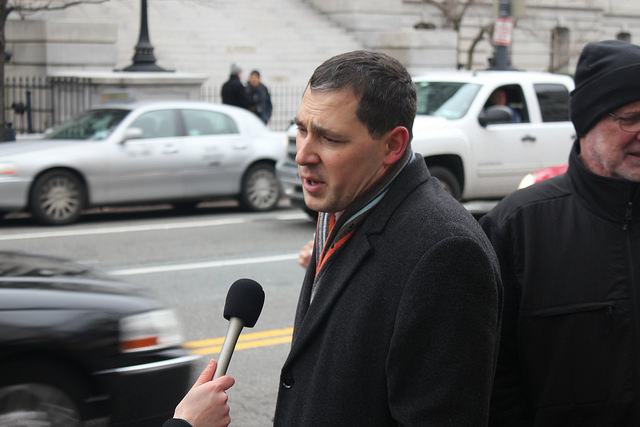- Blog
- Food & Agriculture
- The State of the Union and cognitive dissonance
The State of the Union and cognitive dissonance

Donate Now!
Your contribution will benefit Friends of the Earth.
Stay Informed
Thanks for your interest in Friends of the Earth. You can find information about us and get in touch the following ways:
In thinking through President Obama’s sixth and penultimate State of the Union address, I’ll admit to having wildly mixed thoughts and emotions. Generally, I thought this was one of his best State of the Union addresses, and reflected on why the president was elected in 2008. The values-laden speech spoke to many of the core principles that Friends of the Earth and I hold dear: equity, creating a healthy environment for our children, fairness and protecting everyone’s right to vote .
Where the cognitive dissonance begins for me is the transformation of these values into policy and programs. In several areas of the speech, the president’s words are not reflected in the actions that he and his administration are taking.
Let’s take trade for example. Within the speech the president subtly calls for “fast track” trade negotiating authority to complete huge trade deals in the Pacific and Europe. He defends the call by stating “[the United States] should level the playing field,” and then goes on to admit that “past trade deals haven’t always lived up to the hype.” It is great that the president recognizes this latter point. Unfortunately, there is nothing in the leaked trade texts that indicates that the United States trade representative (the president’s chief trade negotiator) is negotiating these trade deals in a manner that addresses the past sins of overhyped trade deals.
In fact, it appears that the United States is willing to finalize deals that include environmental standards that cannot be enforced, grant foreign companies the right to sue the United States or any country under the trade deal if environmental or public interest regulations diminish future profits, and denies people access to life saving drugs in order to increase pharmaceutical company profits by granting them excessively long and restrictive patent protections. The Pacific and Atlantic trade deals that President Obama is pushing will replicate or even magnify the unfair corporate rights characteristic of NAFTA and other past U.S. trade agreements. The pending trade agreements like past deals reflect the uncharitable vision of the U.S. Chamber of Commerce, not the generous vision articulated by President Obama in his State of the Union address.
Re-reading the president’s forceful remarks on global warming, it is hard to recall any president leaning into global warming in a manner as powerful as he did last night. His comments have the ability to profoundly change the national and international dialogue. Here is the best part of his speech (in my humble opinion):
I’ve heard some folks try to dodge the evidence by saying they’re not scientists; that we don’t have enough information to act. Well, I’m not a scientist, either. But you know what? — I know a lot of really good scientists at NASA, and NOAA, and at our major universities. The best scientists in the world are all telling us that our activities are changing the climate, and if we do not act forcefully, we’ll continue to see rising oceans, longer, hotter heat waves, dangerous droughts and floods, and massive disruptions that can trigger greater migration, conflict, and hunger around the globe. The Pentagon says that climate change poses immediate risks to our national security. We should act like it.
The president is definitely acting on climate change, but at times it is difficult to recognize in which direction he is taking us. For several years now, he has championed an “all of the above” energy strategy which has pushed oil, natural gas and coal production, leading to huge export fights around the country. Further, while the president has used administrative action to set new global warming pollution rules in many areas of the economy and has negotiated a landmark global warming deal with China, it is difficult to categorize these actions as acting “forcefully” or in a manner that sees climate change “as a immediate risk to our national security.” If this were the case, the president would be talking about 100 percent renewable energy or keeping two-thirds of the fossil fuel reserves in the ground. And he would direct his international climate negotiators that staying below a 1.5 degree Celsius increase and getting back below 350 parts per a million carbon pollution is a national interest imperative.
Finally, in looking for what was not in the State of the Union address, you only need to look at rallies occurring across the country protesting the Supreme Court’s Citizens United decision, which unleashed unlimited corporate dollars into our political system. This money is perhaps that greatest political hindrance to the values that President Obama discussed with the American people.
It is my true hope and desire that the president’s State of the Union address signifies a welcomed change in the president’s execution of policy. Without having to worry about the next election or who holds the congressional majority, the president and his administration can “do what [he] believes is best for America.” What is best for the American people and his long-term legacy is to favor the public interest over special interests on trade and over fossil fuel companies on global warming and truly direct his administration in manner that creates more fairness and equity.
